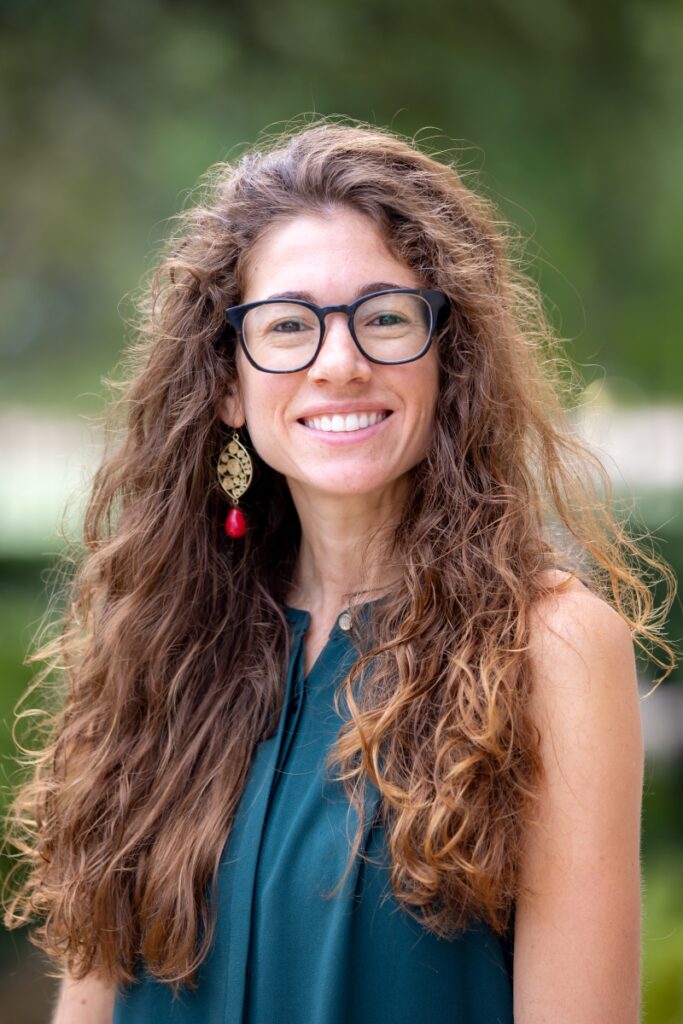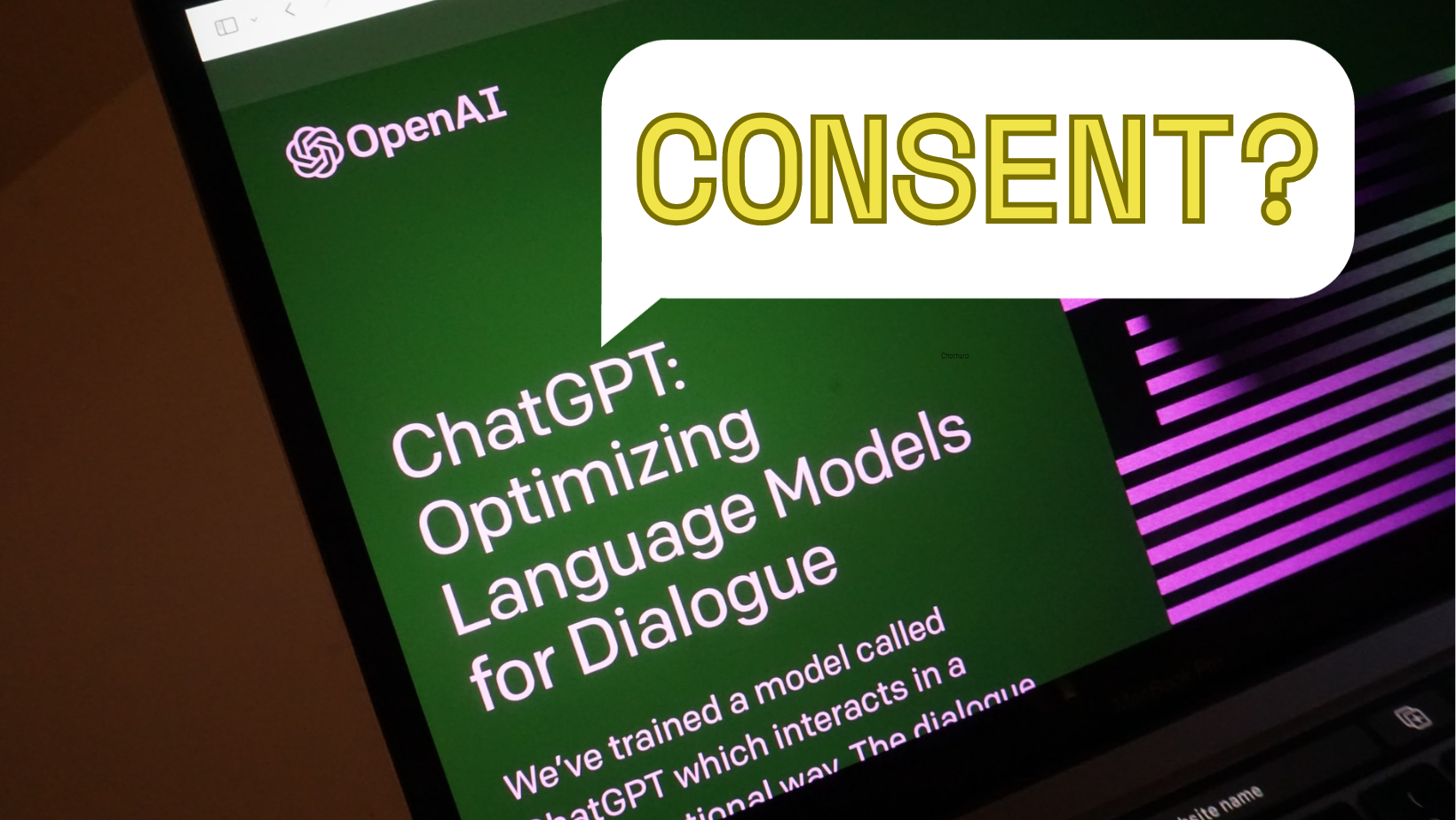In November 2022, ChatGPT exploded onto the global stage, sparking a whirlwind of debate about AI.
While some see the telltale signs of an impending apocalypse, others argue that ChatGPT and systems like it herald a revolution: one that will forever change the way we work, create, solve problems, produce knowledge, and educate.
In the field of sexual education, a group of scientists view it as a potentially more accessible tool to teach about sexual consent.
What is ChatGPT?
ChatGPT is a large language model developed by OpenAI, designed to understand and generate human-like text by predicting what comes next in a conversation.
GPT stands for Generative Pre-trained Transformer, three key aspects of this technology.
- Generative: It can generate coherent text.
- Pre-trained: It has been trained extensively on internet text.
- Transformer: Its type of neural network architecture.
Based on this, ChatGPT is a platform that can answer questions, offer explanations, and engage in detailed discussions, making it a versatile companion for information and interaction.
Built upon complex neural networks inspired by the human brain, ChatGPT has been trained on vast datasets to not only produce text but to understand context and subtleties within language.
Compared to earlier chatbots, ChatGPT is a game-changer in human-machine conversation.
What is sexual consent?

According to sexual consent researcher and Assistant Professor at the University of Alabama, Tiffany Marcantonio, Ph.D., sexual consent can be defined “as the freely given verbal or nonverbal communication of one’s willingness to engage in sexual activity.”
“We would like it to be enthusiastic and verbal, but it doesn’t have to be those things,” she added.
Nonverbal cues also vary from person to person, making it difficult for researchers to agree on one clear and concise definition of sexual consent.
“Some of the ones we hear about a lot are taking out a condom, taking off my clothes, reciprocating sexual activity, moving sexual activity forward to kissing to genital touching to penetrative sex,” Dr. Marcantonio said.
“In doing each of those people can think that consent is being communicated.”
Contextual factors, such as substance use or relationship status, also play a role, said Dr. Marcantonio.
The study
Despite being relatively new compared to other areas like sexual violence, research on sexual consent is fast-growing, especially after the #MeToo movement.
A leader in this emerging body of scientific work, Dr. Marcantonio set out to evaluate ChatGPT’s knowledge of sexual consent and recently published the findings of her study in The Journal of Sex Research in September 2023.
“We don’t provide comprehensive sexual health education here. We don’t really provide any education about sexual health here,” said the Alabama-based researcher, highlighting the importance of this study and the motivation behind it.
Dr. Marcantonio saw ChatGPT’s interactive chat feature as an opportunity for people to easily obtain reliable information if its responses were backed by evidence-based literature.
“Could people turn to this as a resource, particularly in areas where they don’t have access to this information? Or maybe if they’re afraid to ask these questions or it’s not safe for them to ask these questions?” she wondered.
To test ChatGPT, Dr. Marcantonio asked it several questions: what sexual consent means, how it can be communicated without words and with words, and how drinking or using cannabis can change the way consent is communicated. She asked in both academic terms and using more colloquial language.
To check for consistency, three US-based researchers also started new chat sessions with ChatGPT, asking it the same set of academic questions in the same order before comparing responses. They all used the same free version released on March 14,
The results
“I was deeply impressed by it. I’m not going to lie,” Dr. Marcantonio said.
The responses ChatGPT gave weren’t exactly the same across the four researchers. However, their content was consistent and aligned with Dr. Marcantonio’s definition of sexual consent.
“I’m like, ‘Wow!’ These are the things that I spend three weeks lecturing on that it just summarized in two paragraphs here for me,” she recalled.
While the AI language model recognized nonverbal consent cues can count, it preferred spoken consent.
“It always pushed for being verbal and clear. It always encouraged people to not make assumptions if they felt unsure. It encouraged them to ask and check back in,” Dr. Marcantonio said.
Substance use and sexual consent

“When it came to substance use across all of us, it pretty much suggested that substance use is something that really makes this difficult, and that if you’re not sure or if you’re feeling pretty intoxicated, it’s better to save this for the next day,” Dr. Marcantonio said.
There were some differences in how ChatGPT responded to alcohol and cannabis use.
ChatGPT said it was best to avoid sex when high on cannabis, but for alcohol it said to be aware of your limits.
Interpretations of such responses could lead someone to conclude that cannabis is riskier than alcohol, Dr. Marcantonio acknowledged. They may also be partly explained by the lack of research on cannabis and consent.
“A lot of sexual assaults happen with alcohol. So we do know that alcohol is a pretty risky drug that can lead to non-consensual sexual experiences” Dr. Marcantonio said.
“There’s not a lot of research on how cannabis could be affecting this behavior.”
Limitations
ChatGPT still presents limits, including how it might fail someone discussing sexual assault.
“Because it’s not emotionally sentient, it can’t see the person if they’re in distress or not, and so it can’t respond accordingly based on what that behavior looks like,” Dr. Marcantonio said.
Dr. Marcantonio explains that there’s likely a distinction between someone simply sharing their experience of sexual assault for clarity and someone in emotional distress needing immediate support or referral for assistance.
ChatGPT’s AI recognizes that it is not a therapist and, in some cases, will recommend that people call sexual assault hotlines, like RAINN or local crisis centers.
Gender and power imbalances
Another concern the researchers raised is the potential for ChatGPT to involuntarily reinforce power imbalances by not recognizing gender. Its responses did not use pronouns and used the term “partners” when talking about communicating consent.
“In being neutral, it is inclusive, anyone can see themselves in this response that’s brought forward and that is a good thing,” Dr. Marcantonio said.
“We hear too often that people don’t think a space is for them.”
Yet while anyone can ask or provide consent, it’s not a level playing field. Dr. Marcantonio stressed that it’s crucial to be mindful of who is represented in the responses and to remind young people that not everyone is treated equally in our society.
“Whose desires are listened to in sexual activity can differ by gender, by sexual orientation, by racial and ethnic differences, by wealth, by perceived privilege.”
“ChatGPT never talked about the fact that consent can look different based on all of these things, or they could be factors that influence these experiences as well why someone does or doesn’t feel comfortable to report [a sexual assault] or to consent or to refuse or leave a situation.
Future research
Dr. Marcantonio wants to continue studying ChatGPT’s potential role in educating people about sexual consent. In future research, she’d like to grow beyond a team of four to ask it questions, and to develop a better understanding of what to ask.
“The better thing to do would be to actually ask people what they’re asking as opposed to us taking a guess and how they’re asking these questions,” she said.
She also wants to keep an eye on accuracy and safety as the AI language model develops and relies on changing information.
Dr. Marcantonio also doesn’t see ChatGPT as a replacement for human educators, but as a complementary tool.
“It provides knowledge, but knowledge isn’t enough to help these issues,” she said.
Understanding consent and refusal involves more than just knowledge ChatGPT provide
“They require a skills base, they require an opportunity for practicing, they require an ability to engage with vignettes, or stories and role playing. And it can’t do that.”
Still, this is a strong start. ChatGPT is not a specialized agent. Its AI and the likes of it will need to be refined over time to achieve noble goals, like sex education.
With great potential comes great responsibility.
Featured Image Source: Unsplash/Rolf van Root



